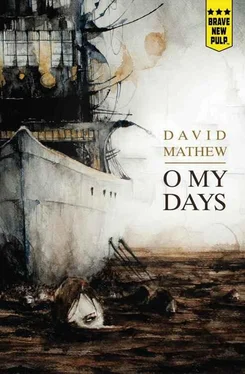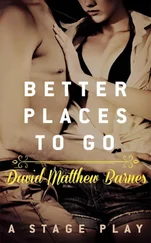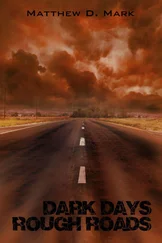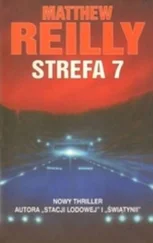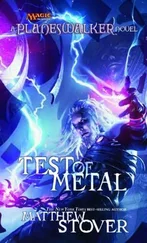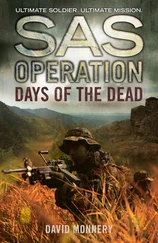Just check what I’ve written and sign at the bottom if you would, Kate says, issuing me with a ballpoint.
Instead of picking up the form I lean over and read it on her desk, not understanding the game at all. It is quickly obvious. In the space under NAME she has written the words I can and under PRISON NUMBER she has written help you . In the box left for today’s date is her handwritten with . The rest of her message follows in the larger boxes for PSYCH HISTORY and REPORT. And it reads: your problems on the outside—with Julie, with your mother—but only if you decide to talk to me. To help me. I want to know why what you remember of the night of your crime is different from what was seen on CCTV. Was there more than one crime that night? Were you more coked up than you have told me? Help me. And I will help you.
It just needs you to sign to agree, Kate Wollington tells me.
I sign my name in a badly-shaking a scrawl as I now continue with my meal in the Cookery Class. Dott is still waiting for me to answer his question.
We were still in the Library, I reply, and I say Kings?
Kings? I repeat. Did you say kings could be grown in the desert?
That’s exactly what I said.
I don’t understand. Ducks now kings, this is insane.
Kate is appearing somewhat dreamy now. She’s reminiscing; she’s lost the hardness of fact and is soft with a different focus—the lens of memory.
Everyone there was obsessed with time. And time meant something slightly different for all of us. Time is strange in the Hola Ettaluun… She giggles naughtily. Bloody understatement of the year! Another cigarette?
The craving of a few seconds ago has already left me in its dust. We’ll get caught, I tell Kate Thistle.
You’re already in prison. What’s the worst that can happen?
Seg? Loss of earnings?
But she’s not listening. Besides, I’ll take the rap, she says, lighting up again. I decline the polite offer nonetheless.
So what did it mean for you? I ask. Time, I mean. I am struggling to hold all of the pieces in my head; it’s like holding onto pieces of a storm.
It meant needing to change my life every few years— completely change my life… I could murder a gin and tonic.
Allow it.
Would you like one? she asks me.
You’re getting it twisted. You’ll get fired, Miss.
You’re right. I’m not supposed to know where it’s hidden anyway.
This takes a second to filter through. You mean it’s the Librarian’s gin?
Oh yes. Quite the Liz Taylor, she is. Little bar behind the DVD Returns trolley. I found it by accident, says Kate. She sometimes has a little evening party with the guards—sorry, officers —on B Wing. She exhales.
Angela?
Kate laughs. Well, she probably won’t thank you for using her first name, she tells me, but yes—Angela.
So much has rattled around in my head for the last little while that I cannot tell anymore when someone is lying to me. Surely Kate Thistle isn’t being serious. Or has she had one already?
All right, I’ll have one. I call her bluff.
No, you’re right. Too risky. I wouldn’t want to get you in trouble.
She has smoked less than half of her burn. She doesn’t want it. Making a sort of yech sound that you might more commonly associate with a child refusing its dinner, she crushes out the butt. Let’s sit down over there.
I don’t care how she intends to dispose of the remains of these smokes—my head is ringing. My voice is whiney when I say: Please make me make sense of all of this. Don’t help me. Make me.
Okay. But she takes bare time to breathe in deeply through her nose—like she’s sniffing the bouquet of a well buff burgundy, blood.
And then we’re interrupted. The door is opened and in walks an officer, his face the physical equivalent of a fart. Everything okay, Miss, he asks.
Fine, officer.
But he doesn’t leave us alone immediately. The smell of smoke must be in the air, as much a giveaway as dirt on your boots. I can see his frown pose the question that his mouth fails to release.
Anything wrong? Kate Thistle calls.
We’re left alone—but it doesn’t take a genius to work out that he’ll be back, doing his rounds, much sooner from now on than he is required to do. Why? Because he’ll want to catch us. Because that’s what screws are like.
Could you give me a job to do, please? I ask.
Why’s that?
For a prop. For when he comes back.
Kate gives a brisk little nod of the head. I think that pile of books there need new issuing stickers inside them, she says. And could you report any damage to the pages on the slip at the back.
It feels good to be given something to do. Despite everything—or maybe because of it—I do not feel comfortable looking at Kate’s face while she speaks. It is as though I have developed some sort of phobia. I start working as Kate starts speaking.
I had Usher’s Syndrome, right from when I was a girl, she says. It’s a condition that meant my eyes were getting worse—getting worse quickly. It was frightening. Imagine: there I was, still in school, and some days it was darker than others, even at the height of summer. I was a miserable child.
I’m not surprised.
It got worse. By the time I was entering puberty it was starting to affect my hearing as well—sometimes my balance. There were good days and bad days but the darkness—the internal darkness—really scared me. On a good day I could go to school and do maybe half the timetabled lessons. Then the page might start to darken, the words swim. Or I wouldn’t be able to hear my name being called and I’d be accused of being naughty. So it was easier to say nothing at all. On a really bad day I couldn’t hear my own voice.
You ain’t been diagnosed, Miss, not at this point?
No. That didn’t happen until I was nearly sixteen, says Kate.
And the air is charged dry—not only as a result of the extractor fans. There is promise in the air, I think—something that is about to be said. It can’t be any longer than a second that I close my eyes, but man, it feels like a whole bunch of hours. It feels like I’ve gone to sleep. Because I dream. Burning as with a fever, I am skimming over broken, bony land—cracked and parched. My feet are not touching the ground. I have no feet. I am mind and consciousness only; my one point of view is what I should by rights be treading on. But I am six feet up, and moving at a remarkable speed towards what? Towards water. I can smell it. Not the fresh, salty smell of the sea—or at least not what I can remember from my one and only visit to the shore, when I was a boy. Or more of a boy, anyway. No. This is ripe with repugnance; the stench is that of an animal’s body torn open and left to rot. There is fear on the wind. Decay and rotted promises. My motion slows. And now I am swimming through the air, doing breaststroke: surge and glide, surge and glide, I top a rise crowned with coffee-coloured sand and the small bleached bones of the unfortunate, and there it is, down at the far, far bowl of this particular dune: the Oasis. Waves of stinking oxygen. The water gently lapping in its riparian way, leaving curves of dark grey oil with every tonguing. I want to bathe. In order to get closer I need to scratch my way through an invisible membrane barrier. I am swimming as hard as I can, my limbs pumping. I am running out of air, and I know that I cannot sink to the hot dry desert floor. It feels like drowning and I am panicking. There is nothing to breathe. For the first time I am aware of a terrible sun on my back; I’ve become flesh. Proximity to the Oasis has watered me whole: from desiccation to solidity. Dusty ash to skin and bone, like the process of death in reverse. Living backwards. Like Dott.
Читать дальше
